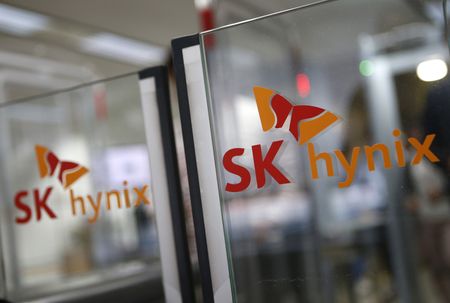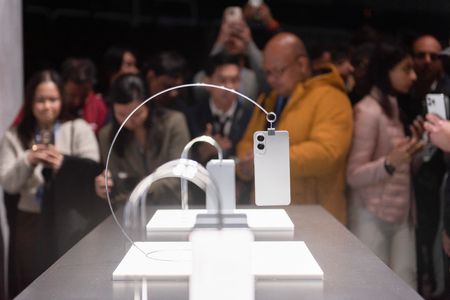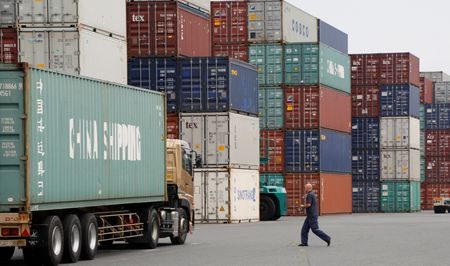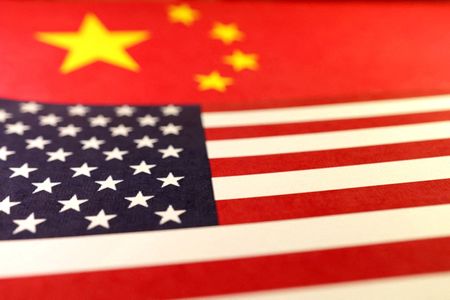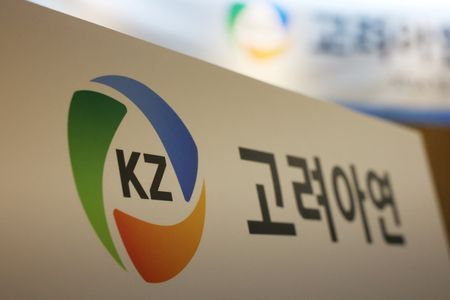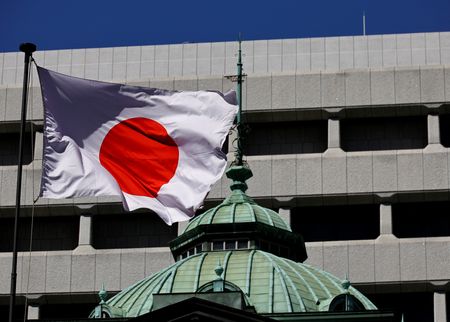By Joyce Lee and Hyunjoo Jin
SEOUL (Reuters) -South Korea’s SK Hynix forecast sales of its high-end semiconductors used in generative artificial intelligence chipsets would double this year after reporting a record quarterly profit that surpassed its bigger rival Samsung.
Shares in SK Hynix, a key supplier to AI chip giant Nvidia, however, dropped 4% on Thursday as the company warned of steeper price declines in commodity memory chips used in smartphones and computers, due to slowing demand and growing competition from Chinese rivals.
Before the result, SK Hynix shares had jumped about 30% so far this year on bullish sentiment driven by its business discussions with Nvidia, outperforming Samsung, whose shares rose 2% over the same period.
“Demand of HBM and high-density server DRAM… will continue to increase as global big tech companies’ investment in AI servers grows and AI inference technology gains importance,” SK Hynix said in a statement.
The world’s second-biggest memory chipmaker posted an operating profit of 8.1 trillion won ($5.64 billion) in the October-December quarter, exceeding Samsung’s forecast fourth-quarter operating profit of 6.5 trillion won.
This is the first time that SK Hynix’s quarterly operating profit beat Samsung’s total operating profit, analysts said, as its rival lags in supplying high-end HBM chips to Nvidia.
The company said its HBM chips accounted for 40% of its total DRAM revenue in the fourth quarter. Overall, its revenue for the quarter rose 75% year-on-year to 19.8 trillion won.
SK Hynix’s operating profit result was slightly above the 8 trillion won average forecast by LSEG SmartEstimate, which is weighted toward analysts who are more consistently accurate, and up from 346 billion won a year earlier.
SK Hynix has been increasingly outperforming rivals Samsung and U.S.-based Micron Technology in recent quarters, as it benefits the most from AI-driven appetite for high-end memory chips following its early entry and large investments in HBM chip development.
SK Hynix said it began supply of 12-layer HBM3E chips, the most advanced HBM model currently in mass production, to a customer in the fourth quarter. It expects it will start supplying even more advanced 16-layer HBM4 chips in the second half of 2026 and that Chinese rivals will face difficulties in developing advanced chips due to U.S. restrictions.
($1 = 1,435.1200 won)
(Reporting by Joyce Lee and Hyunjoo Jin; Editing by Miyoung Kim and Jamie Freed)

